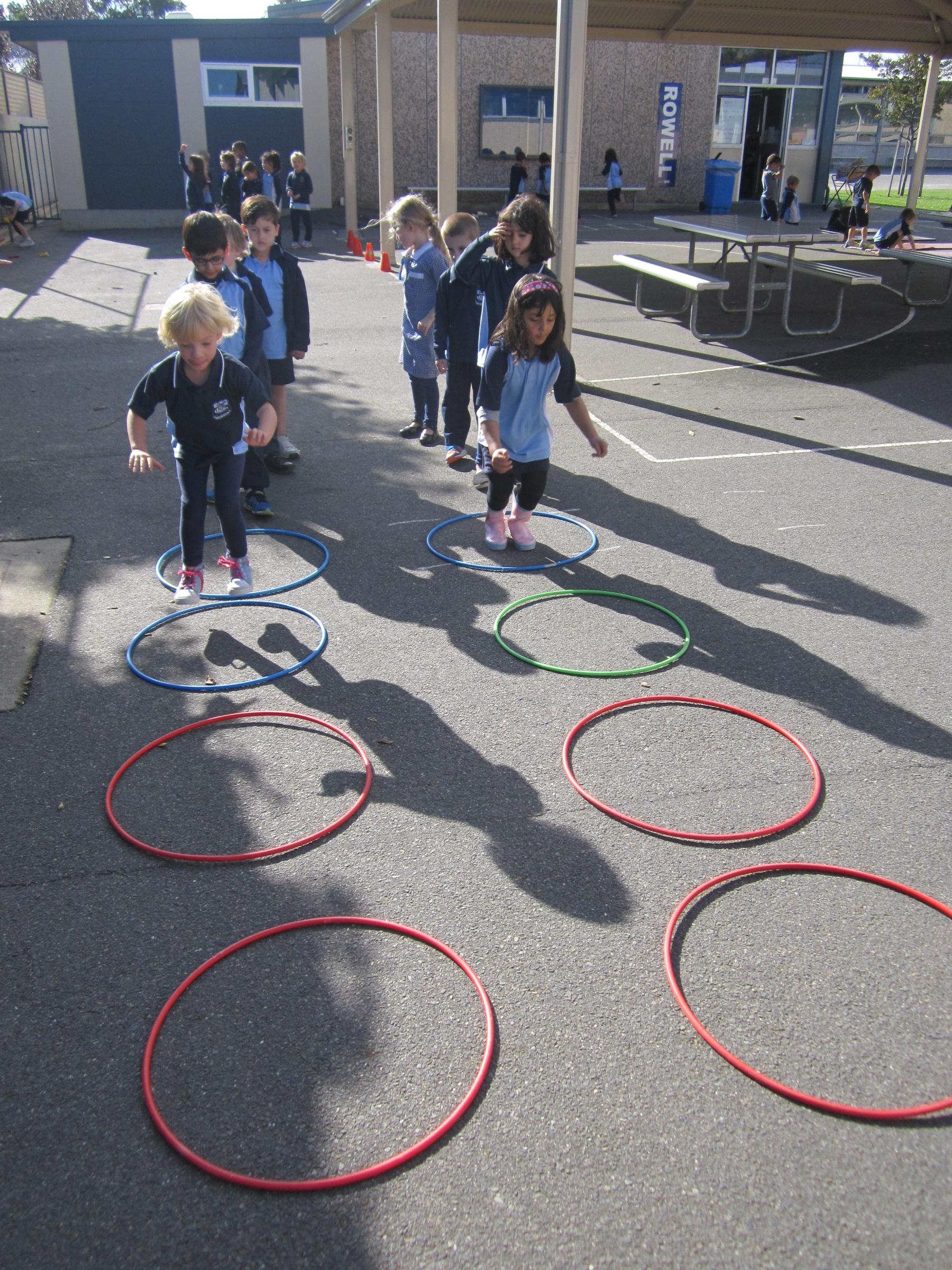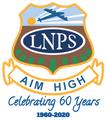Specialists

PE
Students have begun the year learning about the importance of listening to and following the rules of games/activities, what to do when the whistle is blown and how to participate, showing good sportsmanship.
In semester 2, the main areas of study will be on:
LEARNING THROUGH MOVEMENT
Cooperate with others and follow rules when participating in physical activities
Partner, team and class games and challenges
Parachute Play
Introducing parachutes, inflation fun, parachute workout, parachute stretches, parachute games, parachute challenges
MOVING OUR BODY
Skipping
Individual, partner and group skipping challenges
Fundamental movement skills and movement sequences
Ball awareness – bouncing, rolling, throwing, catching, fielding
Stopping and fielding – with hands, with feet, games
Hoop play - hoop balances, hoop stunts, hoop spinning and rolling, hoop relays, hoop games
Ball kicking - passing, kicking for accuracy, kicking for distance
Deckring play – rolling, throwing, catching, deckring and bean bag fun
UNDERSTANDING MOVEMENT
Explore how regular activity keeps healthy and well
Relay, obstacle course, fitness games, challenges and discussions on the importance of physical activity.
Science
Reception students will investigate how daily and seasonal changes in our environment affect everyday life. They will investigate how living things have basic needs, including food and water.
Literacy and numeracy skills will be developed alongside Science Inquiry Skills in a play based, sensory curriculum which supports and challenges students. This also fits in with the Science as a Human Endeavor curriculum strand, where students observe, ask questions about, and describe changes in objects and events.
Science Inquiry skills that children will develop are:
- Questioning and Predicting: Posing and responding to questions about familiar objects and events
- Planning and conducting investigations: Participate in guided investigations
- Processing and analysing data and information: Making observations using the senses
- Evaluating: Engaging in discussions about observations and representing ideas
- Communicating: Sharing ideas and observations in a variety of ways
Students learn Science through inquiry, play and exploration. The Teaching and Learning Cycle is based upon the Five Es Instructional Model developed by the Biological Sciences Curriculum Study Group. The students:
- Engage in the intended learning
- Explore their existing concepts
- Explain and clarify the intended learning
- Elaborate by applying their understanding in new situations and
- Evaluating their learning
German
In German lessons, students use language in context through familiar routines, games, songs and repetition. They exchange greetings and information making connections between English and German. The reception students continue to impress me with their enthusiasm and confidence in remembering new vocabulary as well as their eagerness to use it. Being greeted in the schoolyard in German is an excellent example of using language in context just as when your child(ren) say Guten Morgen (good morning), Gute Nacht (good night) or Danke schoen (thank you).
We will continue to use the language and structures introduced and build on this vocabulary. New language will include the days of the week and actions including some Olympics related vocabulary. In term 4 we will revise concepts and language introduced this year to consolidate the learning. Please encourage your child(ren) to tell you about what they have been learning in German. See what they can teach you! There is so much online to help you support your child(ren)’s learning too!
Frau Edwards (Libby) LA 22 Mon, Tues, Wed.
elizabeth.edwards559@schools.sa.edu.au
